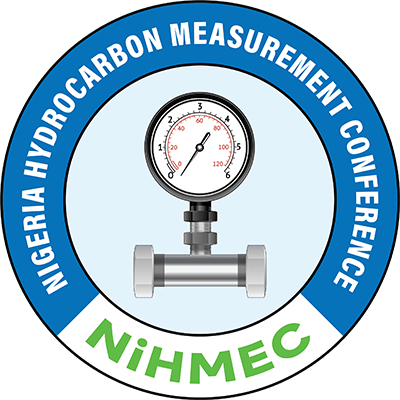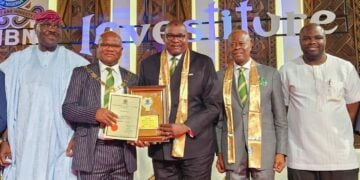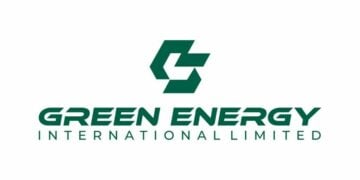The Nigeria Hydrocarbon Measurement Conference (NiHMEC) 2025 is set to underscore the critical role of digital tools and accurate metering in shaping the future of Nigeria’s hydrocarbon sector.
Scheduled to take place from October 7th to 9th in Lagos, the fifth edition of this landmark event will gather key stakeholders from Nigeria’s petroleum industry and the global hydrocarbon measurement community to explore how digitalisation can enhance precision and accountability in hydrocarbon accounting.
Centered on the theme “Beyond the Meter: Leveraging Digitalisation for Accurate Hydrocarbon Accounting,” the conference aims to drive advancements that will support transparency, regulatory compliance, and efficient resource management in Nigeria’s evolving energy landscape.
Speaking at the press briefing in Abuja at the weekend, the chairman of the Conference, Osten Olorunsola, FEI, confirmed preparations for the event on the themed:“Beyond the Meter: Leveraging Digitalisation for Accurate Hydrocarbon Accounting.”
He noted, this is the fifth session we are holding, and we are quite happy about that for us, it’s a major milestone, Olorunsola said.
When we started five years ago, we didn’t know exactly how the journey would unfold, but we are proud of how far we’ve come and even more excited about where we are today.”
He noted that Nigeria’s energy sector is evolving rapidly, particularly with increased activity in the gas and downstream sectors, which makes discussions around metering and measurement even more urgent.
“There’s a lot happening in the downstream space right now. This gives us an opportunity to begin redefining where we want to be in 20 or even 30 years,” he said.
“What gives us hope is how the conversations and engagements at previous editions of this conference have already helped shape our industry.”
Olorunsola outlined three core reasons why hydrocarbon measurement remains critical: he explained that accurate metering is central to commercial transactions in the oil and gas sector, particularly in determining costs, taxes, and royalties.
“In our industry, we refer to the ‘cost of transfer,’ which involves ensuring precision in fiscal measurement. It’s what you measure that you can manage and regulate,” he noted.
He also emphasised the importance of production allocation, especially when multiple stakeholders are sharing a production facility. “Without accurate measurement, fair distribution is impossible,” he said.
He stressing that accurate, real-time data supports production monitoring, inventory management, and terminal operations.
“If you don’t know what’s coming in, you can’t accurately manage what should go out. That creates stock issues and inefficiencies.”
On Regulatory Compliance, Olorunsola stressed that proper measurement is essential for meeting legal and regulatory requirements.
“This is not optional. Measurement is a regulatory obligation and a foundation for national accountability.”
Olorunsola also pointed to rising public scrutiny around Nigeria’s oil and gas revenue, driven by growing citizen awareness.
“Many years ago, this wasn’t a major concern — we were just about 80 to 100 million people. But today, we’re over 200 million, all sharing the same oil and gas resources. Citizens are now asking: ‘Is our oil and gas being properly measured?’ And they are right to ask.”
He described oil and gas revenues as the national cash register”, noting that accurate metering ensures the country knows exactly what it earns — and what it’s owed.
“The future is moving fast especially into gas. Gas measurement is more complex than oil. You’re not only measuring volume, but also energy content, quality, and other critical metrics,” he explained.
Technology, he said, is playing a growing role in simplifying this complexity and improving accuracy in both hardware and measurement practices.
“We look forward to this fifth edition. It marks a transformation in how we see metering and measurement — not just for today, but for the next 20 years.”
The Nigeria Hydrocarbon Measurement Conference 2025 (NiHMEC 5) will serve as a vital platform for industry leaders, regulators, and technical experts to discuss advancements in hydrocarbon measurement, data accuracy, digital tools, and fiscal accountability in Nigeria’s evolving energy landscape.





